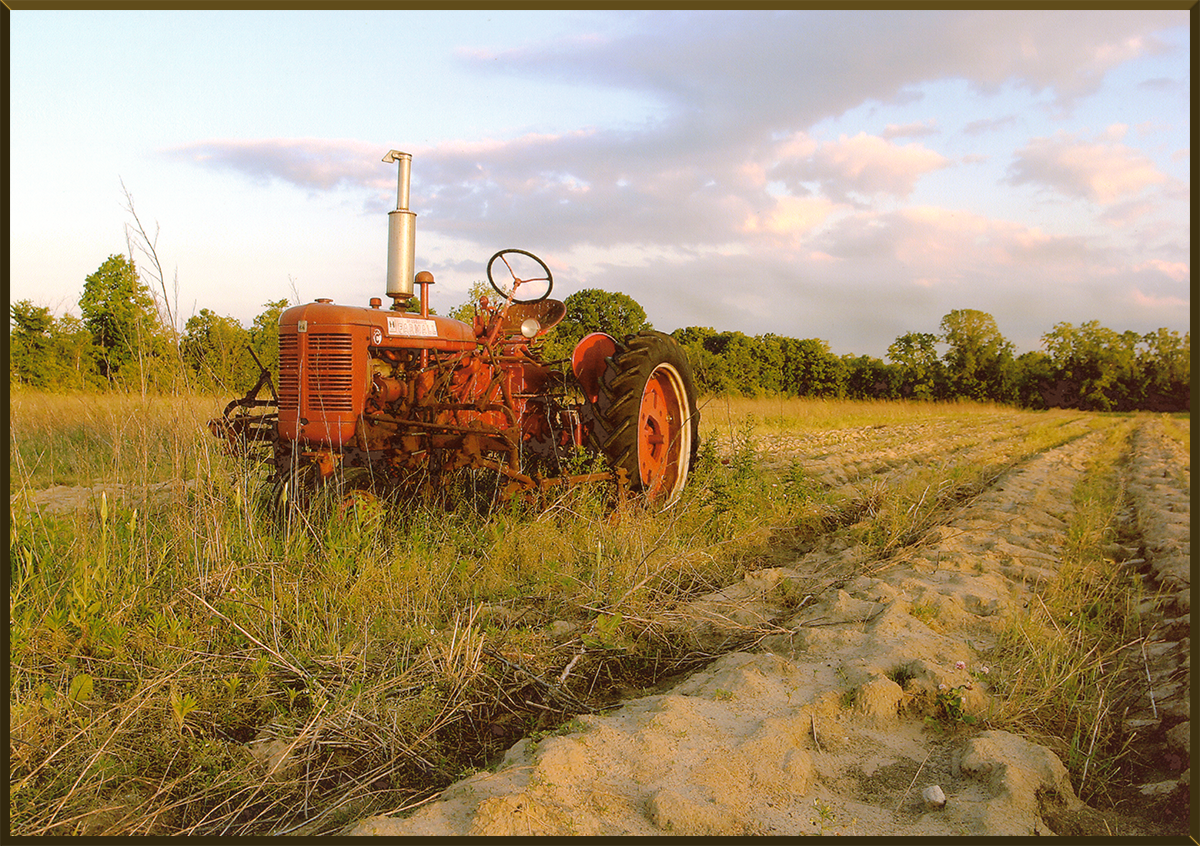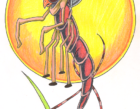Time and Space

From Comes This Time to Float: 19 Short Stories by Stephen Geez:
There will come a time when you need your space.
Used to be, you could spend all day tracing the contours of your little world, following the grain, crisscrossing the rows, digging in the soil, then climbing the highest tree to survey the realm. The day will come, though, when it’s way too small, and you’re way too big.
That drafty old clapboard house will shrink. The furrowed brow of cropfield will grow tiresome. That woman patching holes in her mosaic of vari-hued Mason jars will look away, saddened by talk of futures and plans and that time that comes. The man in the field on that old red tractor, the one who holds tight when you sit on his lap and steer, he will pause to watch you walk away, but he’ll never really let go.
Yet, go you will.
You’ll go after hugging that woman on the weather-worn plank porch, her jars waiting patiently. You’ll go after waving good-bye to the man on the old red tractor, his brow furrowed like the land. You’ll move to the next town, next county, cross-country, ’cross the waters. And the world will expand all around you, often too big, sometimes not nearly big enough. You’ll live and you’ll learn. You’ll love and you’ll lose.
And sometimes you’ll forget what you still have. That’s okay, you’ll think, because in those moments when you find the time, you will remember, so you call, you plan, maybe next week, next month, next year. You’ll know all is well, each season after the last, a woman filling her Mason jars, a man tractoring the sustenance she seals and preserves.
We don’t have to touch a thing to know it’s there.
And you won’t have to touch a soul.
So time will pass and you’ll chase success, even catch your share to seal and preserve, but there won’t be enough, not nearly enough. Then at the worst possible time while you’re shining in the light, those people you love will pass with the shadows, and you’ll have to go back, back across the water, the country, the county, the town. You’ll be in a hurry to fashion lists: arrangements, finances, property, possessions, mementos . . . Who need I tell? you’ll wonder. Who’ll want what? What need I keep? So much to do, so little time.
You’ll turn down that familiar road, eyes straight ahead, but then have to look, to pull to the side. The old red tractor squats forlornly in a patch of scratchy grass amid unplanted furrows, its motor silent, seat empty, the backdrop painting pale purple swatches of intermittent cloud, their passing shadows dark-patching the sunlit treeline.
And it’ll break your heart that a machine can outlast a man.
Then you’ll realize that tractor is yours now. You have no use for it, you’ll think, not even this very thing, a mere object, the tool that helped pay to send you away.
You’ll step closer, then kneel and scratch at the soil, clumps through your fingers reminding how the earth moves with life of its own, and you’ll discover the most exquisite beauty in what you’ve always known but have yet to learn.
You’ll move on, up to the house, then step inside and listen, see the shelves lined with that dependable mosaic of Mason jars; but you’ll reel and have to sit, brought low by empty spaces, empty jars, expectations unmet. You’ll sample the hint of a notion about maybe finishing the job, but there’s no way and no time—no reason, really—and you’ll remember you’ve come, not to fill jars, but to dispose of jars already full. You can’t take them all, would never consume them, but you couldn’t begin to bear the idea of letting her efforts, his harvest, come to waste. Still, time is running out.
People will fill the house. They’ll laugh and they’ll cry, and some will explain to you how they see it all, just see it their way and you’ll be okay, we’ve all been down that road, all that’s bad is really just part of the good.
And you’ll try. Really, you’ll try.
But you’ll know what you’ve always known: Much that’s good comes with a part that’s bad.
More people will appear, many bringing food, some grown right here. A man will approach, a man you never liked. He’ll remind you that space is valuable, time is money, the fields already plowed, seed in the bins, just give him the word and he’ll make the time to work it, maybe split a few dollars, and least not let a season and space go to waste. That will sound okay at first, prudent, even savvy. You’ll hear about others whose specialty is cleaning and selling houses, just write you a check, and that will sound good, too, even prudent and savvy, because you truly don’t have the time, and you know that when all these people have gone, you’ll feel the emptiness of your drafty old clapboard house.
You’ve got a plan now, you’ll think, but in the swirl of darkness that night all that space will surround you. You’ll sample the hint of a notion that you might simply let go, but you know that you cannot. You did not come here to dismantle this part of your world.
You’ve come to find a way to keep it whole.
There must be a young family out there who can love this land, who’ll savor that medley of sustenance now sealed and preserved in that mosaic of Mason jars, who’ll fill jars of their own and hold tight while the wonder of childhood in a big world steers that old red tractor and, hopefully, just maybe, someday proves that when a man passes with the shadows, his world passes to the next man, and the man after, because this is how we live, each of us in our time, all learning to embrace this one simple truth:
The next man will outlast the machine.
You will figure that out, and when you do, you’ll decide there’s no hurry, and you’ll be right. A field needs to lie fallow every now and then. When you work it too hard, worry it too much, you must give it time to rest, to restore itself, recharge, a breather when no one expects you to give anything of yourself.
Come back in a month, sooner if you can. The Mason jars will keep a while longer. They live to buy us more time.
Next time you come you’ll set aside more days, weeks even, a month, and do this your way. You’ll pack up and cart home what you value, yet leave for others what you most cherish.
You won’t be in a hurry. That’s okay. It’s okay that a tractor, there in a field across town, the county, the country, the water . . . it’s okay that a tractor can wait.
It’s okay that a tractor can sit there against a backdrop of pale purple swatches and break your heart.
It’s okay for a tractor to be still while the shadows pass. It’s okay because you’ve decided to do this right.
And you will, you will do this right.
But you’ll need some space.
You just need some time.







